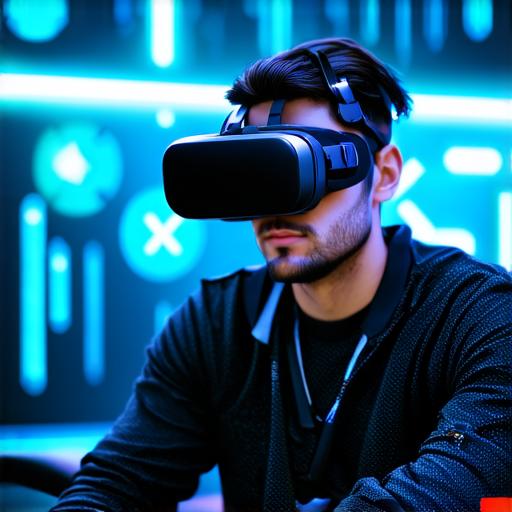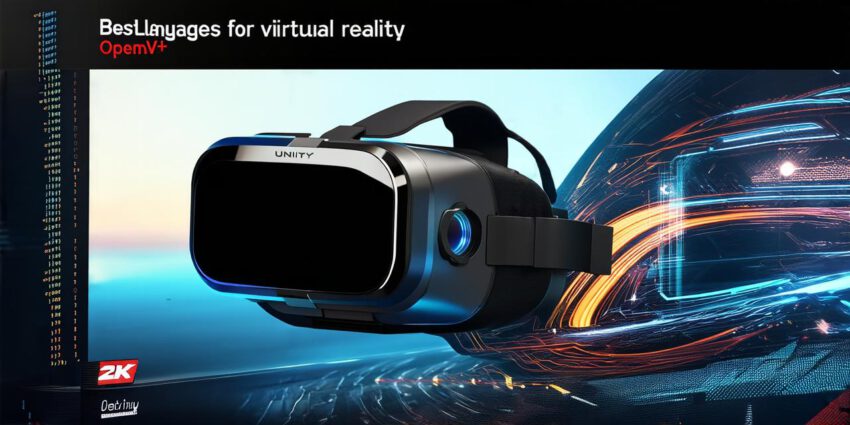Virtual reality (VR) technology is rapidly gaining popularity in various industries, including mobile gaming apps. To create engaging and immersive VR experiences, developers need to choose the right languages that are optimized for virtual environments.
1. Unity 3D
Unity 3D is a popular game engine that supports virtual reality development. It offers a wide range of features and tools that make it easy for developers to create VR games and apps. Unity 3D uses C as its primary programming language, which is a versatile and powerful language that can be used in various domains.
Unity 3D is widely used in the mobile gaming industry due to its ease of use, cross-platform support, and vast library of assets and tools. It also supports various VR platforms, including Oculus Rift, HTC Vive, and PlayStation VR. Developers can easily create VR games and apps for multiple platforms using Unity 3D, which saves time and resources.
2. Unreal Engine
Unreal Engine is another popular game engine that supports virtual reality development. It offers a wide range of features and tools that make it easy for developers to create VR games and apps. Unreal Engine uses C++ as its primary programming language, which is a high-performance language that can handle complex graphics rendering tasks.
Unreal Engine is known for its advanced graphics rendering capabilities and realism. It also has a large community of developers who contribute to its libraries and frameworks, which makes it easier to develop VR experiences. Unreal Engine supports various VR platforms, including Oculus Rift, HTC Vive, and PlayStation VR.
3. Java
Java is a popular programming language used in various domains, including mobile gaming app development. It is also commonly used in virtual reality development due to its portability and scalability. Java offers a wide range of libraries and frameworks that make it easy for developers to create VR experiences.
Java has a strong focus on platform independence, which means that VR apps developed using Java can run on multiple platforms without any issues. It also has good performance, which makes it ideal for complex graphics rendering tasks. Some popular Java-based VR libraries include OpenVR and JMonkeyEngine.

4. C++
C++ is a popular programming language that is widely used in game development, including virtual reality development. It offers high performance and low-level control, making it ideal for handling complex graphics rendering tasks. C++ also has a large community of developers who contribute to its libraries and frameworks, which makes it easier to develop VR experiences.
C++ is known for its speed and efficiency, which makes it an excellent choice for VR development. It is also highly customizable, which means that developers can tailor the language to their specific needs. Some popular C++-based VR libraries include OpenVR and Ogre3D.
5. HTML/JavaScript
HTML/JavaScript is a popular web development language that can be used in virtual reality development. It offers flexibility and versatility, making it easy for developers to create VR experiences for various platforms.
HTML/JavaScript is widely used in web development due to its ease of use and compatibility with various browsers. It can be used to create VR experiences for mobile devices using platforms like WebVR and A-Frame. HTML/JavaScript also has good performance, which makes it ideal for complex graphics rendering tasks.
Comparing the Best Languages for Virtual Reality Development
Each language has its strengths and weaknesses, making them suitable for different types of VR development. Unity 3D and Unreal Engine are popular game engines that offer a wide range of features and tools for creating VR games and apps.
Unreal Engine is known for its advanced graphics rendering capabilities and realism. Java has a strong focus on platform independence, which means that VR apps developed using Java can run on multiple platforms without any issues. C++ is known for its speed and efficiency, which makes it an excellent choice for VR development.
HTML/JavaScript is flexible and versatile, making it easy to create VR experiences for various platforms. In conclusion, mobile gaming app developers can benefit from using virtual reality technology by creating engaging and immersive experiences for their players. The choice of language depends on the specific needs of the project, the developer’s expertise, and the target platform.

